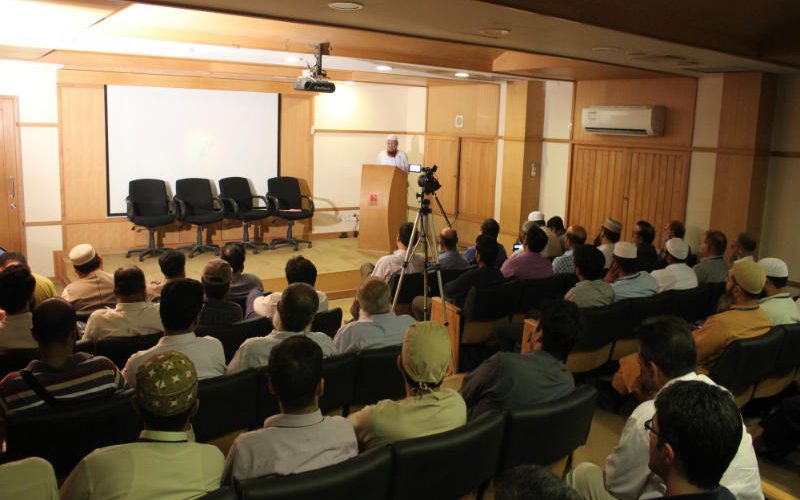
The Indus Hospital (TIH), Karachi conducted an awareness session on ‘Palliative and End-of-Life Care – The Islamic Perspective’, on Thursday, May 31, 2018. Renowned religious scholar, Mufti Mohammad Taqi Usmani was the keynote speaker. Palliative care is not just for the end of life, patient may receive palliative care earlier in illness while they are still receiving other therapies to treat the physical, psychological, spiritual and social needs of both patient and the family. Dignity of the patient is imperative.
Dr. Shamvil Ashraf, Medical Director, Indus Health Network opened the session and welcomed Mufti Muhammad Taqi Usmani. He briefed the audience about the concepts of palliative and end-of-life care and said, “Since compassionate care is part of TIH’s mission and vision, therefore, we put a lot of emphasis on Palliative and end-of-life care. “
Mufti Muhammad Taqi Usmani enlightened the audience about the religious perspective of medical care and compassion. He said, “If a medical practitioner serves a patient he receive blessings from the almighty and this rule doesn’t discriminate on the basis of patient’s religion. Anyone who eases the pain of a human deserves those blessings.”
He informed the audience that “Palliative and end-of-life care is in line with Islamic healing principles. We should try to provide physical, psychological and mental relief to patients.” His key points pertaining to palliative care and Islam were: “Nobody should ask for illness. One should take precautionary measures so that they should not fall ill. However, if it happens then the patient should seek medical assistance as it’s a sunnah. Patient can’t be forced to take treatment and they have the right to refuse. The patient should take all measures to get relieved unless it is affordable and alleviate their sufferings. If the curative treatment is available then a patient could even use a forbidden thing as medicine. If there are treatment options available then the patient should choose the less painful method. Physicians should always treat patients with compassion and console the family as well.”
The speech was followed by a panel discussion. Dr. Syed Ahmer Hamid, Chair Pediatrics Services, Indus Health Network moderated the discussion while the panel was consisted of: Dr. Shamvil Ashraf, Director Medical Services, Indus Health Network; Dr. Atif Waqar, Assistant Professor, Section of Internal Medicine, Department of Medicine, Aga Khan University; Dr. Haroon Hafeez, Associate Medical Director, Consultant Hospitalist/ Palliative Care Physician, Shaukat Khanum Memorial Cancer Hospital and Research Centre; and Dr. Junaid Patel, Chair, Medicine and Allied Services, Indus Health Network .
At the end of the session, Dr. Abdul Bari Khan, Chief Executive, Indus Health Network (IHN) thanked Mufti Muhammad Taqi Usmani and presented a shield to him.

